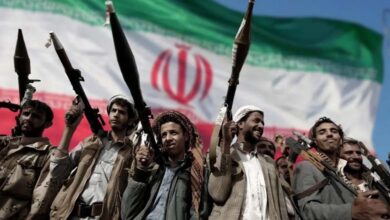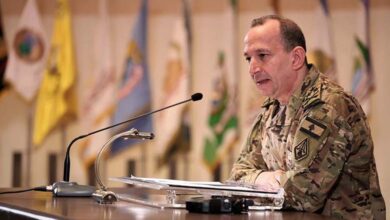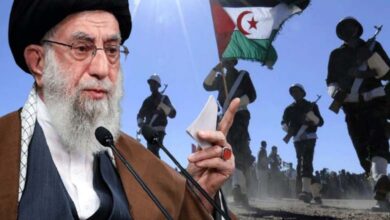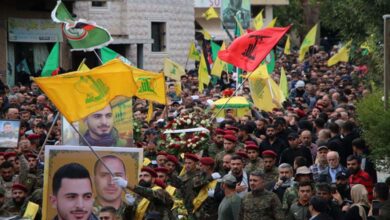Gaza on the fire of waiting… Is a “crescent” of truce appearing on the horizon?
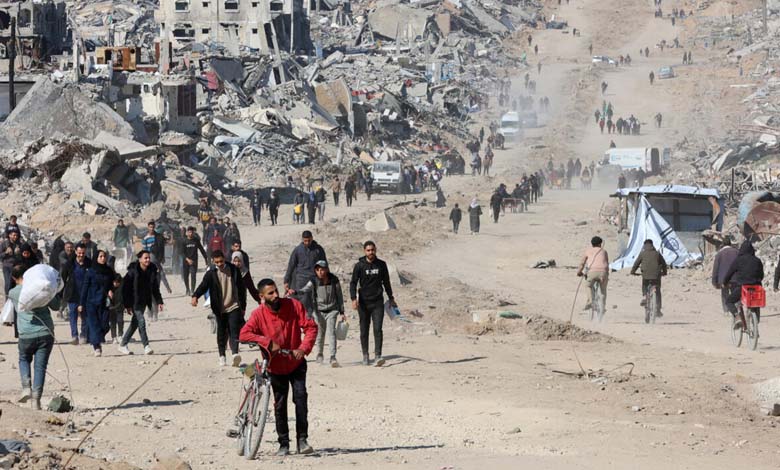
Despite their suffering, the mere thought of regaining a distant sense of safety gives Gaza’s residents a reason to hope in the midst of a tragedy that has driven hope to its lowest ebb.
In the besieged Strip, life offers little reprieve: those who escape the bombing may succumb to hunger; those who survive hunger may die of grief and despair. Death there is pervasive and involuntary, leaving no real alternative to life. Yet, those who remain cling to any proposal, knocking on every door that might bring news of a ceasefire.
-
Two years into the Gaza war, Israel has gone from international sympathy to global isolation
-
Two Years of War in Gaza: How Destruction Spread Like Wildfire
Recently, former U.S. President Donald Trump unveiled a plan for an immediate halt to the war in Gaza, contingent on both parties’ approval, followed by the release of all hostages held in Gaza and hundreds of Palestinian prisoners in Israel.
The 20-point plan also calls for the disarmament of Hamas, the relocation of its fighters to other countries, and the administration of Gaza by a Palestinian committee of technocrats and international experts under the supervision of a council chaired by Trump himself, including former British Prime Minister Tony Blair.
-
900,000 Displaced: Israel’s Account of Civilians Fleeing Gaza City Southward
-
Dangerous Combat Zone: Israel Warns Gaza Residents Against Returning
Hamas said it is studying the plan. On Friday, a senior Hamas official told AFP the movement “needs some time” to review Trump’s proposal, which the Israeli Prime Minister has endorsed. Trump has given Hamas “three to four days” to accept what he calls a plan to end the war.
Despite support from some quarters, many see “loopholes” in the plan, including Israel’s ability to decide unilaterally when conditions allow for a full withdrawal from Gaza.
Israel and Hamas had agreed to a ceasefire on January 19, the last day of outgoing President Joe Biden’s term, with the backing of Trump’s new special envoy, Steve Witkoff. But in March, Israel resumed large-scale military operations in Gaza, leading to a catastrophic humanitarian situation that prompted the UN to declare famine in parts of the territory.
-
Heavy Bombardment: Israeli Fire Defies Trump in Gaza
-
Gaza Residents Back Trump’s Plan and Shout at Hamas: Enough
A continuing tragedy
At least 52 Palestinians, including a Médecins Sans Frontières staff member, were killed Thursday in Israeli strikes across Gaza, according to civil defense officials and medical sources. Twenty-eight bodies were taken to Nasser Hospital in Khan Younis, 14 to hospitals in central Gaza, and 10 to Gaza City.
In Khan Younis, 14 people waiting for aid near the Tineh and Moraj distribution centers were killed. Ten more, including a father and his four children, died when a charitable kitchen in Qarara, in the Mawasi area, was struck.
The war erupted after Hamas’s October 7, 2023 attack on southern Israel, which killed 1,219 people, mostly civilians, according to an AFP tally based on official Israeli figures. In response, Israel’s ongoing offensive on Gaza has killed 66,225 Palestinians, mostly civilians, according to figures released by Hamas.
-
Trump’s Plan for Gaza: Hamas Leader Reveals Timeline for Movement’s Response
-
Gaza on the fire of waiting… Is a “crescent” of truce appearing on the horizon?
No role for Hamas
Egypt’s Foreign Minister Badr Abdel Aaty stated that Hamas would have “no role” in Gaza’s future as his country mediates between Israel and the Palestinian movement.
At a conference organized in Paris by the French Institute of International Relations, he said: “There is complete agreement among us as Arabs and Muslims, and even within Hamas itself: they know full well they have no future role. This is reality.” He added: “Let’s not give any party a pretext to use Hamas as an excuse for these absurd daily massacres against civilians.”
He concluded: “What is happening has gone far beyond the events of October 7, far beyond revenge. This is ongoing ethnic cleansing and genocide. Enough.”
-
The Flotilla of Resilience Heading to Gaza Announces Entry into High-Risk Zone
-
Netanyahu on Trump’s plan: ‘Our army will remain in Gaza’
Hope amid skepticism
Some Palestinians doubt the sincerity of Trump’s plan; others hope it might end their suffering.
From his tent in the Mawasi area, Ibrahim Joudeh (39), originally from Rafah, said: “It’s clear this plan is unrealistic. It’s drafted with conditions the U.S. and Israel know Hamas will never accept.” The computer programmer, displaced by Israel’s May offensive, added: “For us, this means continued war and suffering. We want an end to the war.”
Abu Mazen Nassar (52), displaced from Beit Lahia and living in Deir al-Balah, saw the U.S. proposal as aimed solely at securing the return of Israeli hostages. “This is all manipulation… What does handing over all prisoners without formal guarantees to end the war mean? We as a people will not accept this farce. Trump and Netanyahu are lying to us.”
-
Trump and Netanyahu Announce Gaza Peace Plan Amid Uncertainty Over Hamas’ Response
-
Displaced in a cemetery: Gaza’s living seek refuge among the dead
He added: “Whatever Hamas decides now about the deal, it’s too late. Hamas has lost us and drowned us in the flood it created,” referring to the unprecedented October 7 attack, which Israel answered with a devastating war still unfolding.
By contrast, Anas Srour (31) remains hopeful: “Despite everything we’ve been through and lost in this war… I still have hope,” said the street vendor displaced from Khan Younis to Mawasi. “No war lasts forever. (…) By God’s will, there will be a moment of joy that makes us forget our pain.”
But Najwa Muslim (29), displaced from Gaza City to Zawaida, said: “I’ve not only lost hope in the deal, I’ve lost hope in life itself. We are all prisoners under fire and under helplessness.”



